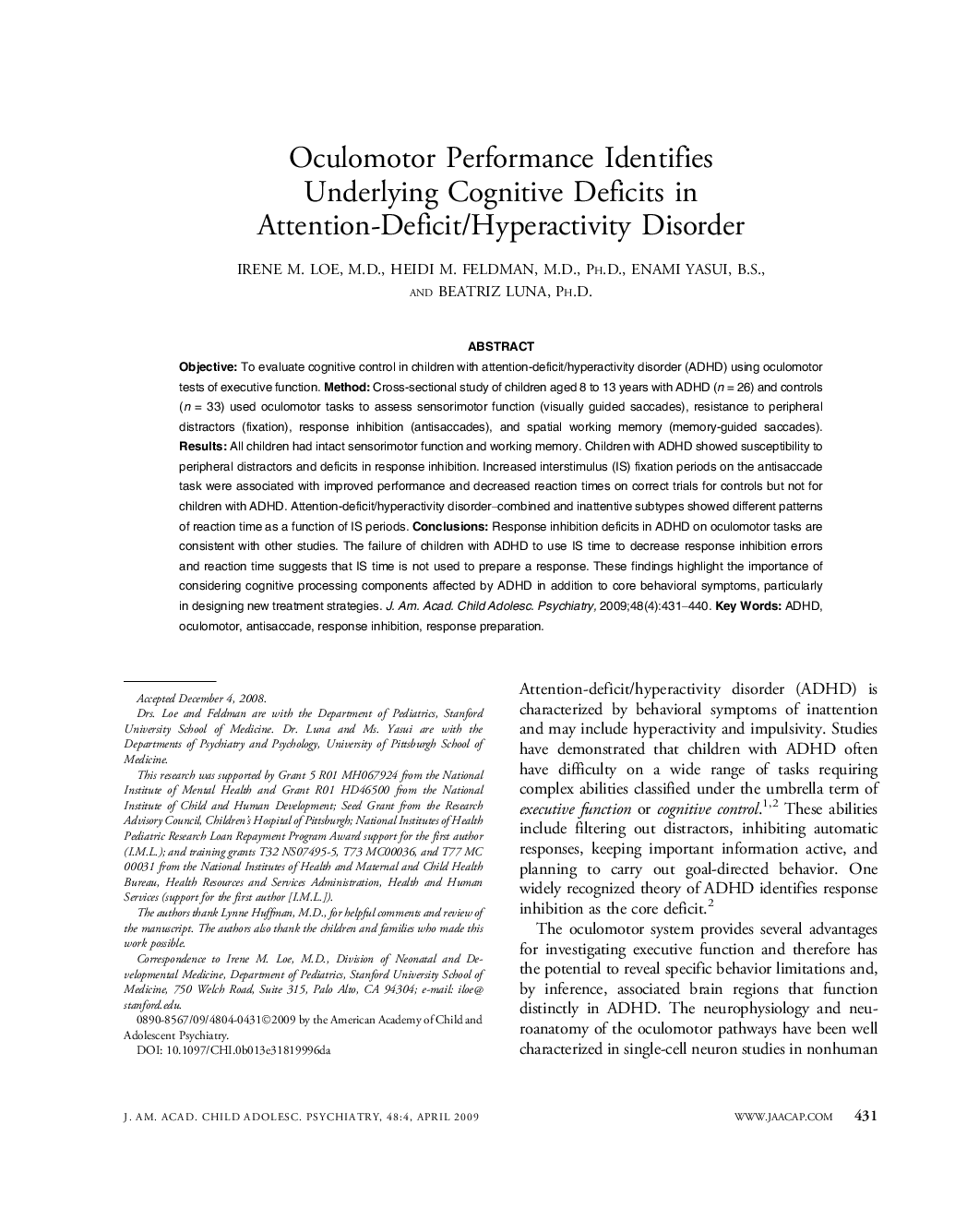| Article ID | Journal | Published Year | Pages | File Type |
|---|---|---|---|---|
| 325901 | Journal of the American Academy of Child & Adolescent Psychiatry | 2009 | 10 Pages |
ObjectiveTo evaluate cognitive control in children with attention-deficit/hyperactivity disorder (ADHD) using oculomotor tests of executive function.MethodCross-sectional study of children aged 8 to 13 years with ADHD (n = 26) and controls (n = 33) used oculomotor tasks to assess sensorimotor function (visually guided saccades), resistance to peripheral distractors (fixation), response inhibition (antisaccades), and spatial working memory (memory-guided saccades).ResultsAll children had intact sensorimotor function and working memory. Children with ADHD showed susceptibility to peripheral distractors and deficits in response inhibition. Increased interstimulus (IS) fixation periods on the antisaccade task were associated with improved performance and decreased reaction times on correct trials for controls but not for children with ADHD. Attention-deficit/hyperactivity disorder-combined and inattentive subtypes showed different patterns of reaction time as a function of IS periods.ConclusionsResponse inhibition deficits in ADHD on oculomotor tasks are consistent with other studies. The failure of children with ADHD to use IS time to decrease response inhibition errors and reaction time suggests that IS time is not used to prepare a response. These findings highlight the importance of considering cognitive processing components affected by ADHD in addition to core behavioral symptoms, particularly in designing new treatment strategies.
